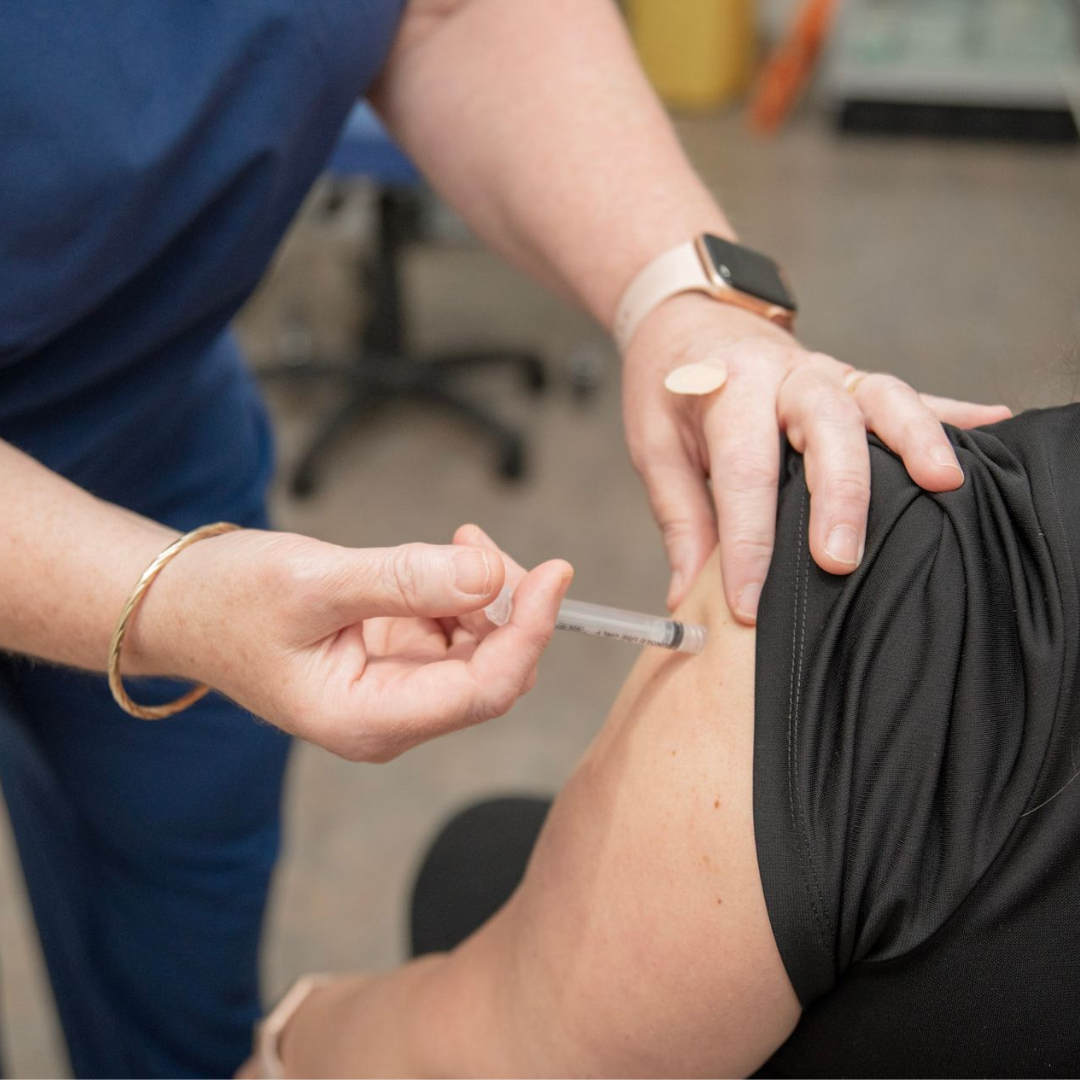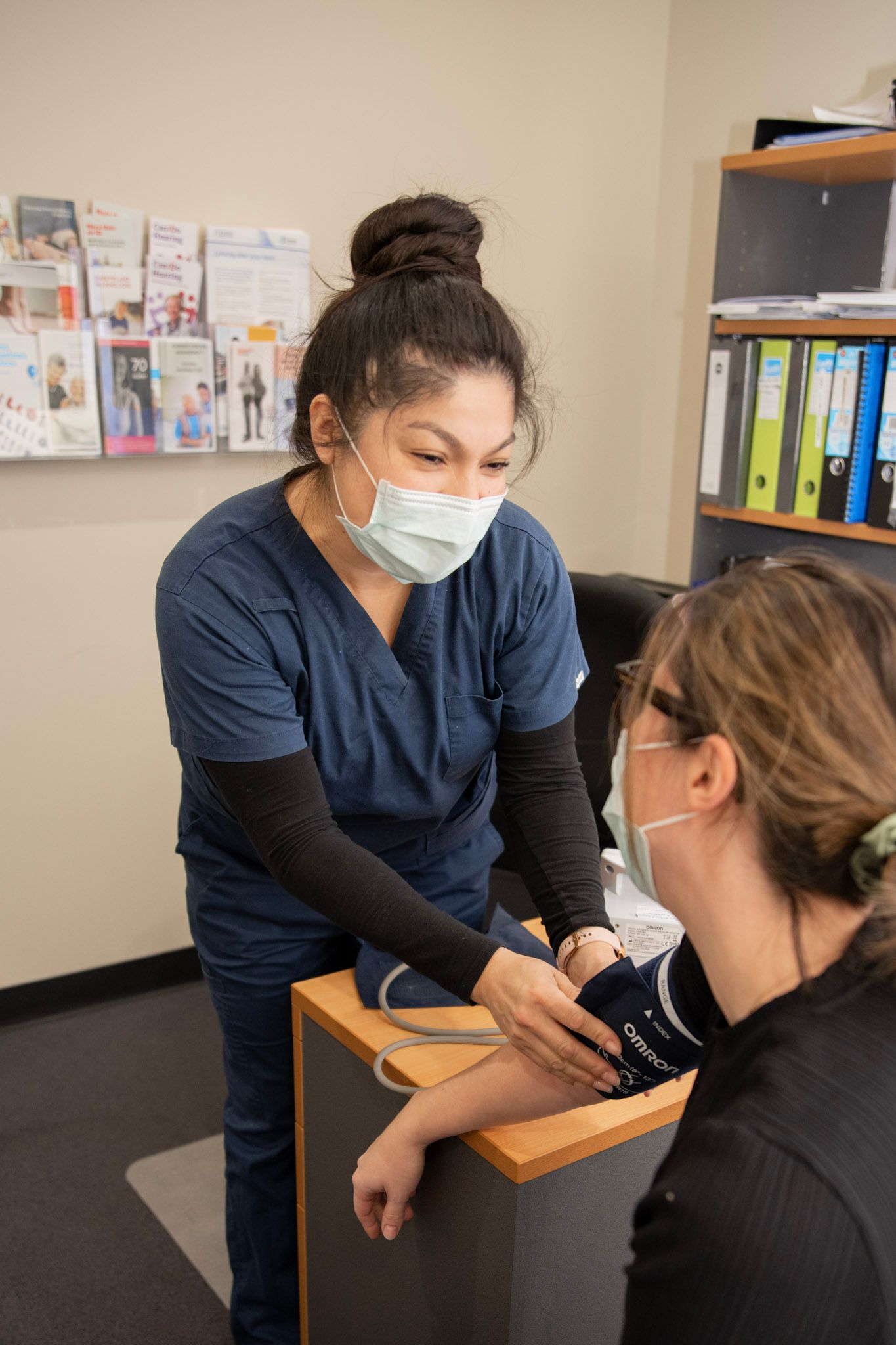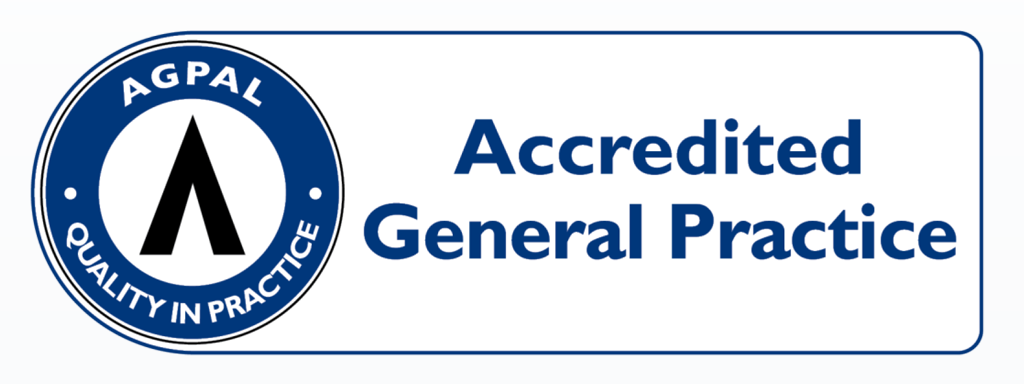Our Services
Services
At Aberfoyle Park Family Practice, we offer a thorough range of services for the management and monitoring of you and your family's health, with a focus on prevention.
For information on service costs, please visit our Billing page.
Family Health
-
Women's Health
Our doctors have a special interest in women’s health. Certainly, women’s emotional and physical health needs are broad and complex – evolving with age, fertility, and our environment.
To sum up, we offer health services to help women avoid future long-term health problems, improve their reproductive health, and improve their well-being.
There are many health issues impacting women and our GPs will support you with:
· Breast checks
· Cervical screening test (which has replaced Pap smear)
· Cosmetic medicine
· Pre-pregnancy planning
· Pregnancy testing and advice
· Chronic disease management
· Contraception advice (including device insertion and removal)
· Family planning
· Fertility advice
· General care – regular health check ups
· Gynaecological treatments
· Immunisations
· Incontinence
· Iron deficiency
· Menopause management
· Menstrual disorders
· Mental health
· Sexual health screening
· Skin cancer checks
· Weight management
-
Children's Health
Our doctors provide child health services and work with their young patients and their families to provide a calm and safe environment.
We understand that children may have a natural apprehension about a visit to the doctor, especially when they are ill.
Maintaining a healthy lifestyle and taking preventative steps to identify risks early is important. Give your kids a healthy start today by talking to your GP about your child’s health. Our GP’s are happy to answer any questions you have and can track your child’s development with regular check-ups.
- Growth and Development Checks
- Childhood Vaccinations
MANAGING CHRONIC CONDITIONS
Chronic disease is a difficult issue for adults to come to terms with, let alone children. And yet unfortunately, they are not exempt from the stress and problems associated with chronic illnesses like diabetes, obesity, and asthma. We offer a range of services including mental health support, so your child and your family receive the support and advice required to make the changes needed to deal with chronic illness.
-
Men's Health
Improving men’s health is a high priority. A boy born in Australia in 2010 has a life expectancy of 78.0 years while a baby girl born at the same time could expect to live to 82.3 years old.
The major concerns with men are:
CANCER
- Colon Cancer checks
- Prostate Cancer checks
CHOLESTEROL
ERECTILE DYSFUNCTION
DEPRESSION
HEART DISEASE
Chronic health conditions need to be managed to improve men’s health. Conditions such as high cholesterol, high blood pressure and diabetes should be managed working to achieve targets which lower risk with a chronic disease management plan. The 45-49 year old health check can be used as a basis for an extensive health check and is covered by Medicare.
Health Management
-
Occupational Health
Business owners and employees have a legal responsibility to manage health and safety in the workplace.
We can assist with
· Pre-employment medicals
· Drug and alcohol screening
· Spirometry
· Travel medicine
· Injury management and rehabilitation
· Workcover cases
· Stress and anxiety management.
In addition, immunisations including influenza vaccines are available for workers to assist with reducing sick leave absence in your workforce.
-
Vaccinations
- Childrens Vaccinations
- Q Fever Screening And Vaccination
- Covid Vaccinations
- Travel Vaccinations
Vaccinations are a simple, safe and effective way of protecting people against harmful diseases before they come into contact with them in the community. Immunisations not only protect individuals, but also others in the community by reducing the spread of disease. No matter what your age or occupation it is recommended that you ensure your immunisations are up to date (www.immunise.health.gov.au)
Childhood Immunisations:
Immunisation from an early age is highly recommended for all Australian children, as it offers protection against the most serious childhood infections. The national immunisation program provides information on the routine childhood immunisations recommended for children in Australia and the schedule coincides with routine childhood health check guidelines.
Travel Immunisations:
Overseas travel exposes you to wonderful new experiences, but it can also expose you to potentially serious travel health risks. Remember – your health is your responsibility – with a bit of preparation, you can prevent an illness that could ruin your holiday, or worse.
SEE YOUR DOCTOR WELL IN ADVANCE BEFORE YOU LEAVE
Your doctor can advise you on how to avoid infectious diseases to which you might be exposed while overseas. This might include measures to avoid consuming potentially contaminated water or food, medication to reduce the risk of acquiring infections or vaccination against serious disease.
IMMUNISATION
Many diseases which are a risk to travellers can be prevented by immunisation. You should talk to our doctor about any vaccines or boosters you may need. Some diseases that should be considered are:
· Hepatitis A
· Hepatitis B
· Influenza
· Japanese encephalitis
· Meningococcal disease
· Rabies
· Tuberculosis
· Typhoid
· Varicella (Chickenpox)
· Yellow fever
· Cholera
· Measles
Some countries still suffer high rates of infection from diseases that are rare in Australia due to our routine childhood vaccination. If you were born overseas, and you are returning to visit friends and family, you should still check with our doctor if you need any immunisations. Your immunity to some diseases may have changed or diminished with time.
Immunisations which are now routine in childhood in Australia should also be considered if travelling to areas where these diseases remain common. Depending on your age and previous medical history, you may not be protected against diseases such measles or polio. It is important to schedule a visit to our doctor at least 6-8 weeks before you travel to allow time to complete any vaccination schedule you undertake.
-
Asthma Management
Asthma is a medical condition that affects the airways (the breathing tubes that carry air into our lungs). From time to time, people with asthma find it harder to breathe in and out, because the airways in their lungs become narrower – like trying to breathe through a thin straw.
Asthma is a chronic lung disease. There is no cure for asthma, but it can usually be well controlled. Most people with asthma can stay active and have a healthy life.
In clinical practice, asthma is defined by the presence of both of the following:
- Excessive variation in lung function (‘variable airflow limitation’, i.e. variations in expiratory airflow that is greater than that seen in healthy people)
- Respiratory symptoms (e.g. wheeze, shortness of breath, cough, chest tightness) that vary over time and may be present or absent at any point in time.
Diagnosis relies on a combination of factors, including:
- Previous history of a recurrent or persistent wheeze
- Family history of asthma or allergies
- Absence of physical findings that suggest an alternative diagnosis
- Variable airflow limitation with testing
- A consistent clinical response to an inhaled bronchodilator or preventer
- Asthma symptoms can be triggered by different things for different people. Common triggers include exercise, cigarette smoke, colds and flu, and allergens in the air (e.g. grass pollen).
ASTHMA MANAGEMENT
Adults:
For adults post asthma diagnosis, the next step is to work with your GP to develop a management (action) plan. This will include choosing a treatment that is appropriate to your asthma symptoms, lifestyle, risk factors and the treatment preferences.
Further, our GP will provide all the required information on asthma as well as providing all the tools for self-management, including the correct inhaler techniques.
Children:
Management plans are designed to ensure the child can maintain a normal quality of life, depending on the severity and pattern of asthma.
In addition, for children already taking regular preventative treatment, adjustments to the treatment regimen may be necessary. Adjustments are based on finding the lowest dose of medicines that will maintain good control of symptoms and prevent flare-ups.
-
Skin Checks
A skin cancer check assesses your skin cancer risk and indicates any current skin problems of concern.
The skin cancer check includes taking your medical history, including previous sun UV exposure, as well as undertaking a detailed examination of your skin. If any moles or lesions have developed or changed in size or nature recently, our doctors will assess and recommend the necessary treatment.
We recommend you see your GP for a skin cancer check at least annually. As well as scheduling your annual assessment, you should see your GP should you notice any of the following signs:
- Changes in a mole size, shape or colour
- The edges of a mole have begun to change
- The mole starts and continues to grow
- The mole is not a solid brown colour, but multicoloured instead
If you notice any of the above, it is advised to book an appointment immediately with your GP for an examination. Your doctor will provide you with a thorough skin check, and scan for symptoms of larger issues.
Health Assessments
-
45-49 Year Old Health Check
45-49 YEAR OLD HEALTH CHECK – IMPORTANT THINGS TO KNOW
We highly recommend that all people should have at least one thorough health assessment with a GP during this stage of life. It’s an excellent time to get a good idea of how your health is tracking, and to make simple changes that can have a positive impact on your quality of life.
45-49 year old health checks are highly recommended by medical bodies and most GPs. This is a turning point in your life when you have a chance to make the lifestyle changes required to prevent the development of chronic diseases, or at least delay their onset.
WHY DO YOU NEED TO GET A 45-49 YEAR OLD HEALTH CHECK?
Between the ages of 45 and 49 years is when, statistically, you have a good chance of showing signs of the development of any chronic diseases that are going to have a significant impact on your health and wellbeing later in life. At this early stage, your GP may be able to make recommendations that, if adhered to, can help ensure you avoid many of the health problems you may face later in life.
If you haven’t been particularly informed about your health in the past, or if you are unlucky enough to have developed a chronic illness despite all efforts to maintain your health, then this health check is critical. For people who display risk factors for developing chronic disease, a 45-49 year old health check is even more important. Some risk factors that may lead to the development of chronic illness include:
· Your family history – if others in your family have developed chronic diseases, this may increase your chances of doing so.
· Biomedical factors – if you have high blood pressure, high cholesterol, or are overweight, your risk of developing a chronic disease may be increased. A health check can help identify these risk factors.
· Your lifestyle – if you are a smoker, are sedentary, drink excessively or have poor dietary habits, your risks of developing a chronic disease such as diabetes are very likely higher.
· If you believe that you fulfil any of the above risk factors, speak to your GP about how you can make changes to prevent them from exacerbating any existing illnesses or causing the development of chronic diseases in future.
WHAT’S INVOLVED IN A 45-49 YEAR OLD HEALTH CHECK?
A 45-49 year old health check is largely about assessing your risks of developing chronic diseases in future, while also assessing your current state of health and helping you to make better choices. Your doctor will ask a series of questions involving the following factors:
· Whether you smoke, what you smoke and how often.
· Your diet, whether you’re eating enough fruits and vegetables and what types of fat you consume.
· How often you drink alcohol and how many alcohol-free days you have per week.
· Your level of physical activity, and how many minutes of moderate to high intensity activity you perform each day.
· Your mental health and feelings of depression or anxiety.
· Family history for a variety of illnesses, including stroke, heart disease, diabetes and osteoporosis.
Your GP will likely carry out some basic physical examinations. You will be weighed and have your body mass index assessed. If you’re found to be overweight, your GP will help you develop a plan to return to a healthy weight. Your blood pressure will be checked, and your doctor will talk to you about your risk of diabetes and heart disease, and how to reduce that risk. Your GP can also advise you about skin checks to detect skin cancer.
You may be required to undergo some tests, such as testing for blood cholesterol, and glucose levels. Your GP can also check that you are up to date for immunisations and screening tests like PAP Smears.
MEDICARE REBATE FOR THE 45-49 YEAR OLD HEALTH CHECK
You will be eligible for a Medicare rebate for your 45-49 year old health check if you are at risk of developing a chronic disease. You may also be eligible for a Medicare rebate for further healthcare requirements, particularly if the outcome of your health assessment is further management of chronic diseases.
If you are approaching that age, be aware of SNAP, four areas of health that GPs analyse to get an idea of your overall medical state. SNAP includes:
· Smoking
· Nutrition
· Alcohol intake
· Physical activity
-
75 Years + Health Check
If you are aged 75 years and older and live at home, you are eligible for a bulk-billed annual health assessment. In other words, this health check is provided at no cost.
An annual health assessment will identify ways that you can improve your health and wellbeing. For instance, it will help you by advising you on how you can maintain your independence at home and in your community.
Importantly, the purpose of this health assessment is to help identify any risk factors that may require further health management. In addition to assessing a person’s health status, a health assessment is used to identify a broad range of factors that influence a person’s physical, psychological, and social functioning.
Our friendly and professional nurse will undertake a comprehensive and confidential health check.
75 years and older annual health assessment
The annual health assessment involves:
- information collection, including taking a patient history and undertaking or arranging examinations and investigations as required;
- making an overall assessment of the patient;
- recommending appropriate interventions;
- providing advice and information to the patient;
- keeping a record of the health assessment, and offering the patient a written report about the health assessment, with recommendations about matters covered by the health assessment; and
- offering the patient’s carer (if any, and if the GP considers it appropriate and the patient agrees) a copy of the report or extracts of the report relevant to the carer.
COMPONENTS OF THE HEALTH ASSESSMENT
Specific components of the health check includes an assessment of the patient’s:
- medication;
- continence;
- immunisation status for influenza, tetanus and pneumococcus;
- physical function, including the patient’s activities of daily living, and whether or not the patient has had a fall in the last 3 months;
- psychological function, including the patient’s cognition and mood; and
- social function, including the availability and adequacy of paid and unpaid help, and whether the patient is responsible for caring for another person.
Furthermore, the assessment also includes:
- measurement of the patient’s blood pressure, pulse rate and rhythm;
In addition, the nurse undertaking the health assessment may also consider:
- any need the patient may have for community services;
- social isolation of the patient;
- the patient’s oral health and dentition; and
- the patient’s nutrition status.
Above all, our nurse will work closely with you and your General Practitioner. Therefore, our nurse will co-ordinate any necessary follow up consultations or supports to help you manage your health in the future.
-
Diabetes Risk Assessment
Type 2 diabetes is one of the largest contributors to ill health in Australia. In short, type 2 diabetes accounts for 92% of diabetes cases. Diabetes is associated with complications. For example, increased risk of cardiovascular, eye and kidney disease.
The incidence of type 2 diabetes has more than doubled in the last 15 years.
Lifestyle risk factors can lead to the onset of type 2 diabetes. In particular, being overweight and obesity, physical inactivity, and poor diet can be prevented through lifestyle modification. International evidence has shown that early lifestyle interventions in high-risk patients can reduce the incidence of type 2 diabetes by up to 58%.
DIABETES EVALUATION
The diabetes evaluation will be provided with the assistance of our chronic disease nurse with your general practitioner.
The evaluation will involve:
- Assessment of lifestyle risk factors
Body Mass Index measurement, blood pressure and general health
- physical exam, and
- Family history review.
-
Chronic Disease Assessment
Chronic disease management plans form part of our commitment to the health of our local community. Our doctors can provide management plans for patients who suffer with a chronic medical condition.
CHRONIC MEDICAL CONDITIONS
A chronic medical condition is one that has been present for at least six months or longer, such as:
· Asthma
· Cancer
· Cardiovascular disease
· Diabetes
· Musculoskeletal conditions
· Stroke
CHRONIC DISEASE MANAGEMENT PLANS
Chronic disease management plans are designed by general practitioners for patients who have complex conditions that require ongoing care, and a structured approach.
A GP Management Plan (GPMP) can help people with chronic medical conditions by providing an organised approach to care. A GPMP is a plan of action you have agreed with your GP. This plan:
· identifies your health and care needs;
· sets out the services to be provided by your GP; and
· lists the actions you can take to help manage your condition.
TEAM CARE ARRANGEMENTS
If you have a chronic medical condition and complex care needs requiring multidisciplinary care, your GP may also develop Team Care Arrangements (TCAs). These will help coordinate more effectively the care you need from your GP and other health or care providers.
TCAs require your GP to collaborate with at least two other health or care providers who will give ongoing treatment or services to you. Let your GP or nurse know if there are aspects of your care that you do not want discussed with other health care providers.
REGULAR REVIEWS
Once a plan is in place, it should be regularly reviewed by your GP. This is an important part of the planning cycle, where you and your GP check that your goals are being met and agree on any changes that might be needed.
Health Management
-
Occupational Health
Business owners and employees have a legal responsibility to manage health and safety in the workplace.
We can assist with
· Pre-employment medicals
· Drug and alcohol screening
· Spirometry
· Travel medicine
· Injury management and rehabilitation
· Workcover cases
· Stress and anxiety management.
In addition, immunisations including influenza vaccines are available for workers to assist with reducing sick leave absence in your workforce.
-
Vaccinations
- Childrens Vaccinations
- Q Fever Screening And Vaccination
- Covid Vaccinations
- Travel Vaccinations
Vaccinations are a simple, safe and effective way of protecting people against harmful diseases before they come into contact with them in the community. Immunisations not only protect individuals, but also others in the community by reducing the spread of disease. No matter what your age or occupation it is recommended that you ensure your immunisations are up to date (www.immunise.health.gov.au)
Childhood Immunisations:
Immunisation from an early age is highly recommended for all Australian children, as it offers protection against the most serious childhood infections. The national immunisation program provides information on the routine childhood immunisations recommended for children in Australia and the schedule coincides with routine childhood health check guidelines.
Travel Immunisations:
Overseas travel exposes you to wonderful new experiences, but it can also expose you to potentially serious travel health risks. Remember – your health is your responsibility – with a bit of preparation, you can prevent an illness that could ruin your holiday, or worse.
SEE YOUR DOCTOR WELL IN ADVANCE BEFORE YOU LEAVE
Your doctor can advise you on how to avoid infectious diseases to which you might be exposed while overseas. This might include measures to avoid consuming potentially contaminated water or food, medication to reduce the risk of acquiring infections or vaccination against serious disease.
IMMUNISATION
Many diseases which are a risk to travellers can be prevented by immunisation. You should talk to our doctor about any vaccines or boosters you may need. Some diseases that should be considered are:
· Hepatitis A
· Hepatitis B
· Influenza
· Japanese encephalitis
· Meningococcal disease
· Rabies
· Tuberculosis
· Typhoid
· Varicella (Chickenpox)
· Yellow fever
· Cholera
· Measles
Some countries still suffer high rates of infection from diseases that are rare in Australia due to our routine childhood vaccination. If you were born overseas, and you are returning to visit friends and family, you should still check with our doctor if you need any immunisations. Your immunity to some diseases may have changed or diminished with time.
Immunisations which are now routine in childhood in Australia should also be considered if travelling to areas where these diseases remain common. Depending on your age and previous medical history, you may not be protected against diseases such measles or polio. It is important to schedule a visit to our doctor at least 6-8 weeks before you travel to allow time to complete any vaccination schedule you undertake.
-
Asthma Management
Asthma is a medical condition that affects the airways (the breathing tubes that carry air into our lungs). From time to time, people with asthma find it harder to breathe in and out, because the airways in their lungs become narrower – like trying to breathe through a thin straw.
Asthma is a chronic lung disease. There is no cure for asthma, but it can usually be well controlled. Most people with asthma can stay active and have a healthy life.
In clinical practice, asthma is defined by the presence of both of the following:
- Excessive variation in lung function (‘variable airflow limitation’, i.e. variations in expiratory airflow that is greater than that seen in healthy people)
- Respiratory symptoms (e.g. wheeze, shortness of breath, cough, chest tightness) that vary over time and may be present or absent at any point in time.
Diagnosis relies on a combination of factors, including:
- Previous history of a recurrent or persistent wheeze
- Family history of asthma or allergies
- Absence of physical findings that suggest an alternative diagnosis
- Variable airflow limitation with testing
- A consistent clinical response to an inhaled bronchodilator or preventer
- Asthma symptoms can be triggered by different things for different people. Common triggers include exercise, cigarette smoke, colds and flu, and allergens in the air (e.g. grass pollen).
ASTHMA MANAGEMENT
Adults:
For adults post asthma diagnosis, the next step is to work with your GP to develop a management (action) plan. This will include choosing a treatment that is appropriate to your asthma symptoms, lifestyle, risk factors and the treatment preferences.
Further, our GP will provide all the required information on asthma as well as providing all the tools for self-management, including the correct inhaler techniques.
Children:
Management plans are designed to ensure the child can maintain a normal quality of life, depending on the severity and pattern of asthma.
In addition, for children already taking regular preventative treatment, adjustments to the treatment regimen may be necessary. Adjustments are based on finding the lowest dose of medicines that will maintain good control of symptoms and prevent flare-ups.
-
Skin Checks
A skin cancer check assesses your skin cancer risk and indicates any current skin problems of concern.
The skin cancer check includes taking your medical history, including previous sun UV exposure, as well as undertaking a detailed examination of your skin. If any moles or lesions have developed or changed in size or nature recently, our doctors will assess and recommend the necessary treatment.
We recommend you see your GP for a skin cancer check at least annually. As well as scheduling your annual assessment, you should see your GP should you notice any of the following signs:
- Changes in a mole size, shape or colour
- The edges of a mole have begun to change
- The mole starts and continues to grow
- The mole is not a solid brown colour, but multicoloured instead
If you notice any of the above, it is advised to book an appointment immediately with your GP for an examination. Your doctor will provide you with a thorough skin check, and scan for symptoms of larger issues.
Can't find the service you were looking for?

Check out our Allied Health page for further information on our internal collaboration services.










